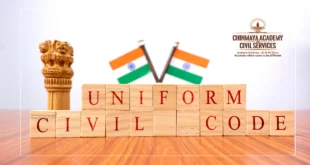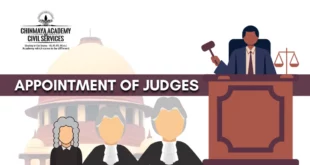- The time limit fixed by the Supreme Court for the constitution of an inter-State river water disputes tribunal for Pennaiyar river expired and Tamil Nadu is waiting for the Centre’s next course of action.
- In 2018, Tamil Nadu filed an original suit against Karnataka constructing check-dams and diversionary structures on the river.
- In 2019, Tamil Nadu formally requested the Union government to constitute a tribunal for adjudication of disputes over the waters of the river, also known as ‘Thenpennai’.
- Tamil Nadu objected to the construction of a check-dam across the Markandeya, a tributary of the Pennaiyar, by Karnataka.
About the river:
- This is the second longest river in Tamil Nadu after the Kaveri.
- The river originates in the Nandi Hills in the Chikkaballapura district of Karnataka.
- It flows through Tamil Nadu before emptying into the Bay of Bengal.
- It’s catchment area is located in Karnataka and Tamil Nadu.
Related Constitutional Provisions
Entry 17 under State List:
This entry deals with water i.e. water supply, irrigation, canal, drainage, embankments, water storage and water power.
Entry 56 under Union List:
It empowers the Union Government for the regulation and development of inter-state rivers and river valleys to the extent declared by Parliament to be expedient in the public interest.
Article 262:
- In case of disputes relating to waters Parliament may by law provide:
- For the adjudication of any dispute or complaint with respect to the use, distribution or control of the waters of, or in, any inter-State river or river valley.
- That neither the Supreme Court nor any other court shall exercise jurisdiction in respect of any such dispute or complaint as mentioned above.
Legislations as per Article 262:
River Board Act, 1956:
The Act empowers the Central Government to establish boards for Interstate Rivers and river valleys in consultation with State Governments.
Inter-State Water Dispute Act, 1956:
When any state government approach the Central Government for the constitution of the Tribunal, the Centre may form a Tribunal after trying to resolve the dispute through consultations.
Supreme Court shall not question the decision of the Tribunal but it can question the working of the Tribunal.
Composition of Tribunal:
- Chief Justice of India
- Sitting Judge from Supreme Court
- Two other Judges either from Supreme Court or High Court
Provisions under the Inter-State River Water Disputes Act, 1956:
- The Tribunal has to be constituted within a year of getting the request.
- Tribunal must give the award within 3 years.
- Two more years can be given in certain situations.
- The Tribunal award is not immediately implemented and the concerned parties may seek clarification within 3 months of the award.
- Tribunal Awards will have the same force as the order or decree of the Supreme Court.
- The award is beyond the jurisdiction of the Supreme Court and will be considered final
SOURCE: THE HINDU, THE ECONOMIC TIMES, PIB
 Chinmaya IAS Academy – Current Affairs Chinmaya IAS Academy – Current Affairs
Chinmaya IAS Academy – Current Affairs Chinmaya IAS Academy – Current Affairs



